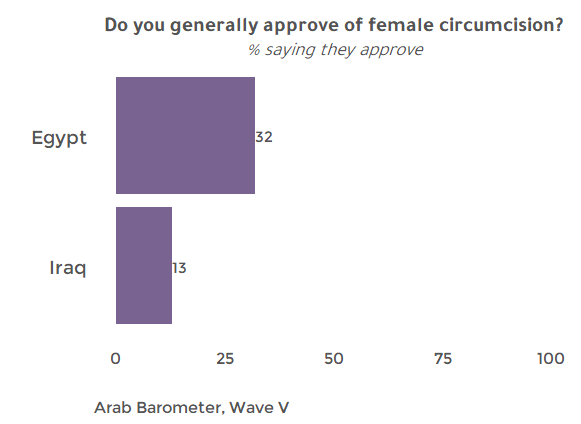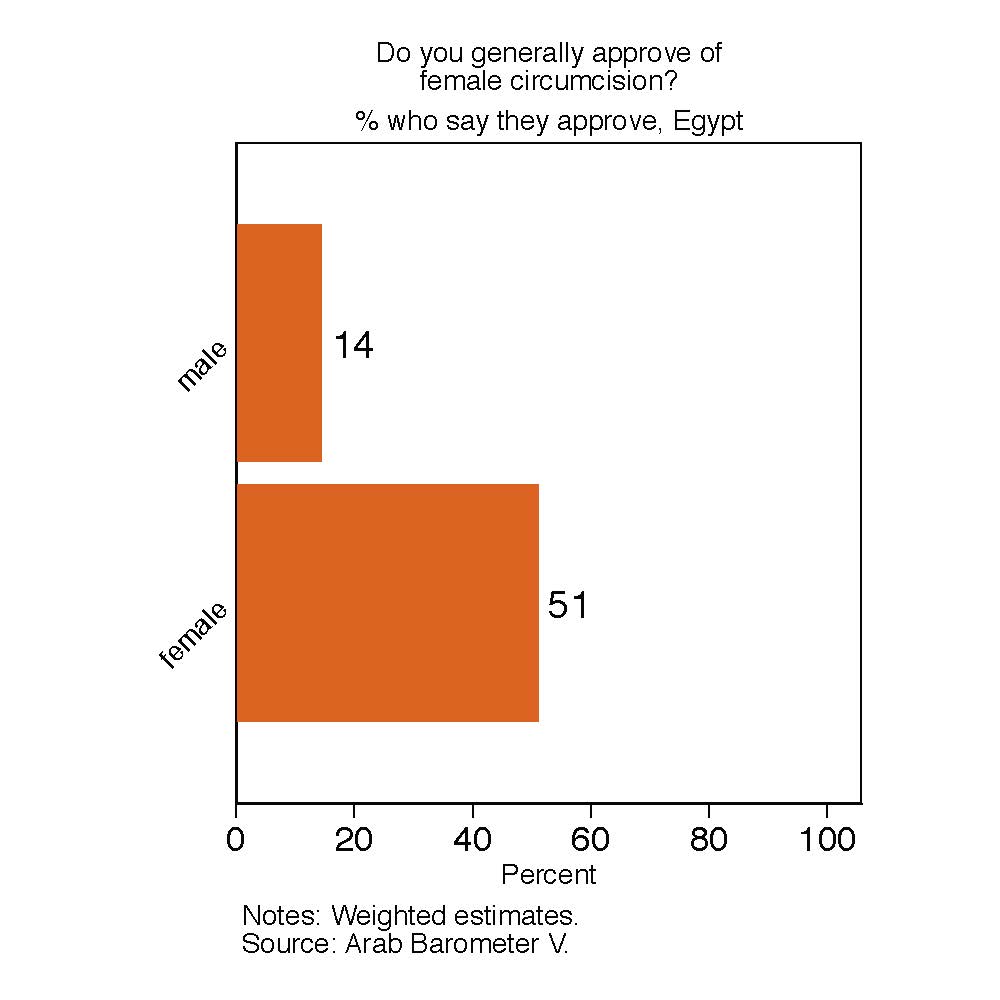Even though the country first outlawed FGM in 2008 and further deemed it a felony in 2016, 51 percent of Egyptian women still approve of the procedure.
Female genital mutilation (FGM), which is defined as a “partial or total removal of external genitalia, or any other injury to the female genital organs for non-medical reasons” by the World Health Organization (WHO), is extremely common in Egypt.
According to a 2014 survey, 92 percent of Egyptian women aged between 15 and 49 have been circumcised. The procedure – which has killed young girls in Egypt – can lead to worrisome side effects including severe physical pain, bleeding, and the risk of wound infections. The practice has also been revealed to cause a delay in women’s sexual response cycle.
Yet, people in Egypt don’t seem to be concerned over the practice nor do they seem to acknowledge its effects. In a recently conducted survey by research firm Arab Barometer, around 2,400 citizens in Egypt and Iraq each were asked if they generally approve of female circumcision. As it has been explained by Arab Barometer, some of the participants who took part in the survey were asked about the topic in a less direct way. FGM appeared in a list of options of taboo subjects that respondents were asked to choose from.
he survey revealed that the number of individuals who “approve” of female circumcision in Egypt totaled 32 percent, more than double of those in Iraq (13 percent).
The horrific practice is illegal yet common in the country. Those who engage in the procedure – or enforce it on their daughters – claim that it “protects” a girl’s purity because it can “diminish sexual pleasure.”
The country first outlawed FGM in 2008 and further deemed it a felony in 2016 following the case of a 17-year-old teen who bled to death after undergoing the procedure. Before the law was updated, the practice was classified as a misdemeanor and carried a penalty of three months to a maximum of three years in prison. However, stricter laws aimed at curbing the phenomenon haven’t stopped some parents from trying to find other ways to have it administered. Just last month, a 12-year-old girl died during the operation. The deceased victim, Nada Hassan Abdel-Maqsoud, was taken to a retired doctor who performed the surgery on her in a private clinic located in the Upper Egyptian governorate of Assiut. Her parents, uncle, and aunt accompanied her to the medical center where she later died of “surgery complications.” Her family members have since been arrested.
Despite all measures taken by the government, Egypt continues to register one of the highest FGM rates in the world. According to a 2016 survey by UNICEF, “87 percent of girls and women between the ages of 15 and 49” have been genitally cut.
Arab Barometer’s recent survey is further evidence that the perceptions and attitudes of people in Egypt with regards to FGM are still of concern.

What’s even more shocking is the fact that women approve of female circumcision more than men do in the North African country.
According to the survey, the percentage of individuals who reported approval of FGM was higher among females (51 percent) and lower among males (14 percent).

You would think that women would support the protection of other women – and their daughters – from such a vile procedure but it seems as though the concept of “female pleasure” is still very much a taboo topic in the country as is the case in many other Arab countries. The protection of “family honor” seems to be more important than guarding a woman’s agency and bodily choices…
Read full article on StepFeed

